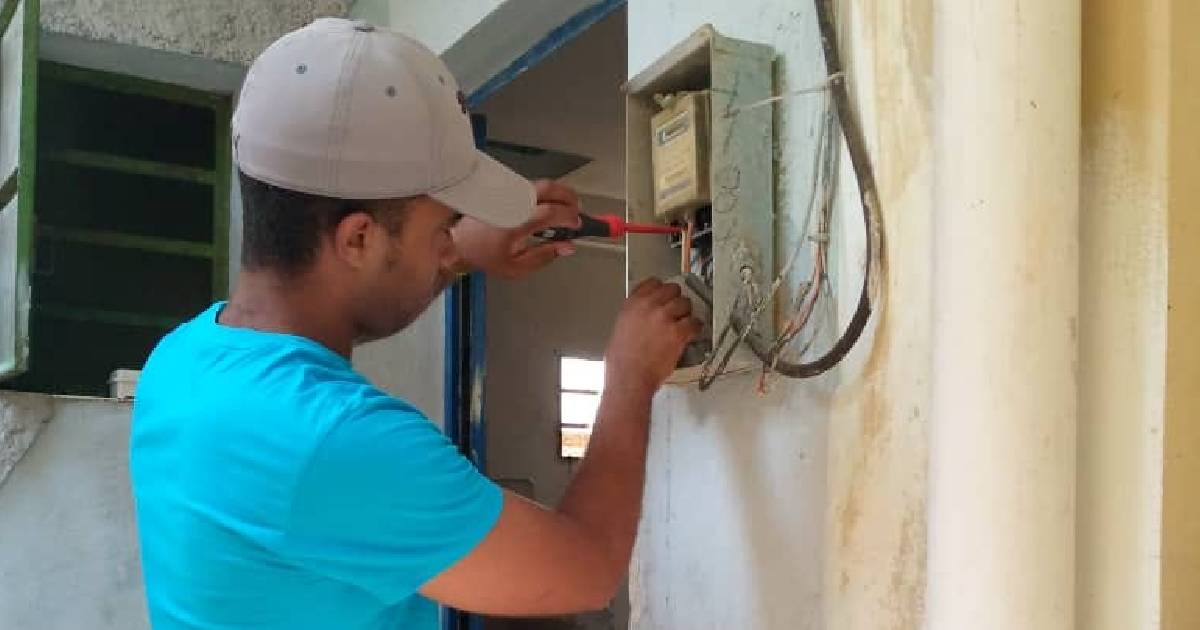The government of Havana is showing signs of distress amid a severe energy crisis, grappling with escalating cases of electricity fraud and the need to monitor the consumption plans of the private sector. In July alone, more than 15,000 incidents of electricity fraud were detected in the Cuban capital, according to José Conesa González, the coordinator of programs and industrial objectives for the provincial government, during a meeting of the Provincial Energy Council.
According to the official, as reported by the state-run Tribuna de La Habana, over 90% of the detected frauds are linked to unreported activities by consumers, including undeclared production and service operations. “The municipal administrations and energy councils have not managed to align their records with those of the local labor departments,” Conesa stated, attributing this gap to individuals working from home.
Liván Izquierdo Alonso, the first secretary of the Communist Party in Havana, emphasized that fines and retroactive payments are insufficient solutions. “Control mechanisms must be effective. We have state entities exceeding their assigned consumption plans. Why not take measures against these wasters?” he questioned.
Izquierdo also stressed the national responsibility to conserve electricity and adhere to assigned consumption plans. “The Energy Council is not just for meetings and daily evaluations but for implementing actions to improve our work,” he asserted.
Private Sector Surveillance
Another key agenda item for the Council is monitoring the consumption plans of private businesses. “For this month, we have the names and addresses of each place by municipality to notify them of their consumption plans. Representatives of the municipal energy councils must visit these locations to ensure that, like state entities, these private clients report their readings daily,” Conesa highlighted during the meeting.
He also noted that there are necessary controls over the 4,275 private businesses in the capital, many of which are identified as high consumers.
The Cuban regime continues to target high consumers and calls for energy-saving measures or creative resistance, while Cubans endure prolonged blackouts. Recently, the arrival of new vehicles for the Electric Company sparked public outcry, with many suggesting that new thermoelectric plants and fuel are needed more urgently to prevent power cuts.
The regime had promised to reduce blackouts during the vacation months, but by the end of July, it cited a diesel fuel shortage and unforeseen breakdowns as reasons for the unstable electricity service.
The strategy to maintain and optimize thermoelectric plants to lessen blackouts during the hottest months and school vacations has proven ineffective, leaving the regime yet again unable to fulfill its promises.
Understanding Havana's Electricity Fraud Crisis
In light of the escalating cases of electricity fraud in Havana, here are some frequently asked questions to provide a deeper understanding of the situation.
What is causing the high number of electricity fraud cases in Havana?
The high number of electricity fraud cases in Havana is primarily due to unreported activities by consumers, including undeclared production and service operations.
How is the government of Havana responding to the electricity fraud crisis?
The government is intensifying its monitoring efforts and emphasizing the need for effective control mechanisms. They are also targeting high consumers and implementing energy-saving measures.
What are the challenges faced by the municipal energy councils in Havana?
Municipal energy councils in Havana struggle to align their records with those of local labor departments, particularly due to the activities of individuals working from home.
